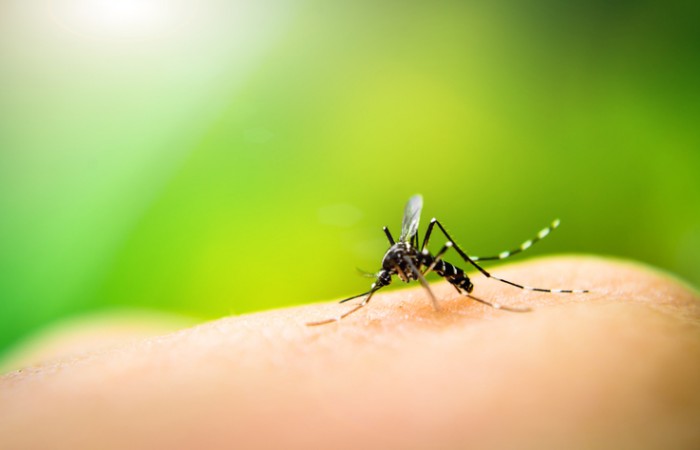
New mutations in the malaria parasite that enhance resistance to a drug used to prevent the disease in pregnant women and children are already common in countries fighting the disease, says a new study.
Malaria is caused by parasites (Plasmodium species) which enter the blood when infected mosquitoes feed. "We need to understand how these mutations work and monitor them as part of malaria surveillance programs," said study co-author Taane Clark from the London School of Hygiene and Tropical Medicine (LSHTM).
Malaria causes about 435,000 deaths each year, primarily in young children in sub-Saharan Africa. Despite a long-term global response, efforts to control the disease are hampered by the rise of drug-resistant strains of the parasite species that cause malaria. Sulfadoxine-pyrimethamine (SP), for example, was once a first-line anti-malaria treatment but is now primarily used to prevent infection in pregnant women and children. Mutations in two genes in the parasite Plasmodium falciparum offer resistance to SP, but recently, mutations related to resistance were discovered in a third gene, pfgch1 (GTP cyclohydrolase I gene)
To understand the extent and spread of these new mutations, the researchers analyzed genome sequences from 4,134 blood samples collected from 29 countries where malaria is endemic. They discovered at least ten different versions of pfgch1, which occur in about one quarter of the samples from Southeast Asia and in one-third of the samples from Africa, where strains carrying the mutations may be on the rise, showed the study published in the journal PLOS Genetics.
Vitamin D inexpensive, low-risk and can build up immunity to COVID-19: Experts
Research conducted to study relation between Adjustment and parenting in children.
Everyday Mouthwashes, oral rinses may inactivate human coronaviruses: study